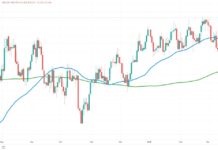 Sustainability is a buzz word that is now associated with everything from real estate development to diapers. I haven’t checked, but it would probably be difficult to find a company in the S&P 500 that did not have a “sustainability” strategy. Some companies such as Whole Foods (WFM) and First Solar (FSLR) have business models that are either based upon or rely entirely on the concept of sustainability. Others such as Apple (AAPL) are continually trying to operate in a more sustainable way by installing solar power, reducing waste or offsetting carbon emissions. If being sustainable is so important to companies and consumers then why as investors do we hardly ever consider it as a factor in investment decisions? Does sustainable investing even exist? Could we increase returns by screening for or evaluating sustainability characteristics in companies? What time frame do I need to have as a “sustainable” investor?
Sustainability is a buzz word that is now associated with everything from real estate development to diapers. I haven’t checked, but it would probably be difficult to find a company in the S&P 500 that did not have a “sustainability” strategy. Some companies such as Whole Foods (WFM) and First Solar (FSLR) have business models that are either based upon or rely entirely on the concept of sustainability. Others such as Apple (AAPL) are continually trying to operate in a more sustainable way by installing solar power, reducing waste or offsetting carbon emissions. If being sustainable is so important to companies and consumers then why as investors do we hardly ever consider it as a factor in investment decisions? Does sustainable investing even exist? Could we increase returns by screening for or evaluating sustainability characteristics in companies? What time frame do I need to have as a “sustainable” investor?
This blog on sustainable investing is aimed at answering some of these questions. Specifically, it will explore the concept of sustainable investing and how it may lead to higher returns.
In real estate, sustainable development basically means developing in a way that meets the needs and objectives of the present without endangering or compromising the ability of future generations to do the same. When it comes to investing the concept is similar and can be defined as making investments such that short-term performance is not at the expense of realizing long-term return objectives. However, since long term investors are also short term investors, it is equally important that the promise of superior long term returns does not mean sacrificing performance in the short term.
So, the real question, are there superior risk adjusted returns for investors that make investing in sustainable companies a core focus? Evidence suggests that there is and not only over the longer term. Traditionally, investors always thought that time horizons for “sustainable” investments had to be longer in nature in order to take advantage of mispriced externalities, but that is changing. For example, “academic research now shows that firms with high ratings for Environmental, Social and Governance (ESG) factors consistently have a lower cost of capital in terms of both debt and equity. In other words, they are lower risk in a fundamental sense. Additionally, Deutsche Bank (DB) in a recent paper on sustainable investing claimed that 100% of the studies they found showed that firms with high ratings for corporate social responsibility (CSR) and ESG factors exhibit both market and accounting based financial outperformance.”
Today’s world and financial markets are full of unpredictability and uncertainty. Major events such as the nuclear catastrophe in Japan, hurricane Sandy and the debt crisis have increasingly shaped the world and the investment landscape over the past five years. Looking into the future there is no doubt that climate change, energy scarcity, clean water and demographic change will influence our way of life and financial markets to a greater extent. Therefore, identifying companies that account for economic, social and environmental sustainability should help investors achieve superior risk adjusted returns over both the short and long term. Stay tuned for more on sustainable investing. I hope you are enjoying your holiday weekend. Thanks for reading.
Sources:
- Sustainable Investing, Establishing Long Term Value June 2012, DB Climate Change Advisors
- Sustainability in Investment, We Need a Bigger Boat, August 2012 Towers Watson
Twitter: @JoshuaSchroede2 and @seeitmarket
No position in any of the mentioned securities at the time of publication.
Any opinions expressed herein are solely those of the author, and do not in any way represent the views or opinions of his employer or any other person or entity.








